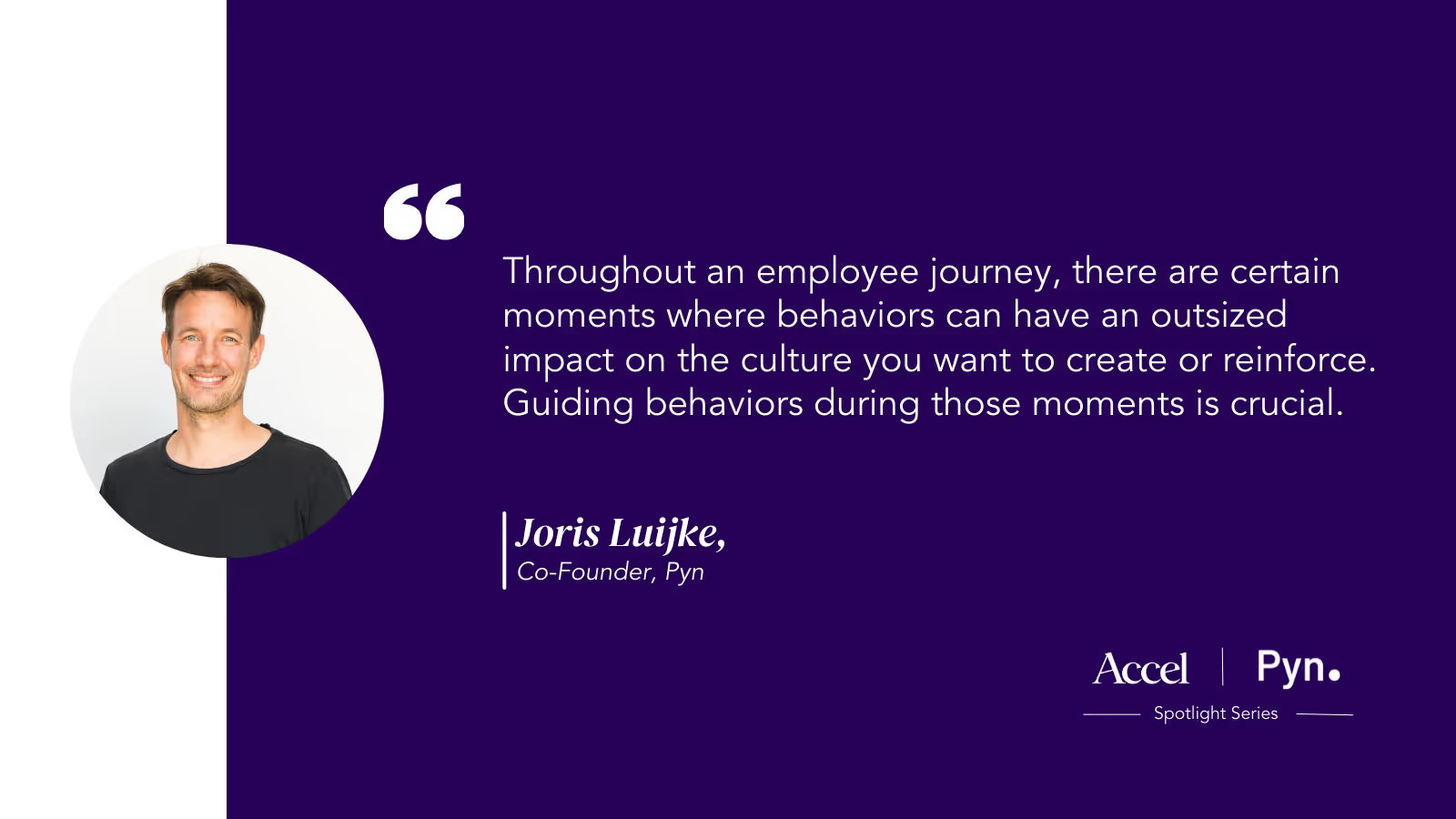Spotlight On: Company Culture & Values
.avif)
In our Spotlight On series, experts from around the globe share recommendations and resources for start-up teams. This feature was contributed by Joris Luijke, Co-Founder of Pyn, an Employee Communications & Experience Platform.
There are many different definitions of company culture, but most commonly it is defined as a reflection of the behaviors of a company’s people.
My more ‘practical’ way to define culture is: If a majority of people behave a certain way a majority of the time then that behavior is part of your culture. For example, if two thirds of your employees are having lunch together two thirds of the time - you have a culture of having lunch together. So, if you get more people to do something more often you can impact culture.

Before starting Pyn, I used to run HR at Atlassian and Squarespace. During this time it became very clear to me that crafting and maintaining culture is incredibly important for every company, and especially among high-growth and remote teams.
A successful culture is rooted in strong company values. They help companies as they provide behavioral guiding lights on how to deal with any situation. But simply defining company values isn't enough. Companies that have successfully scaled culture apply a range of programs and systems to reinforce specific behaviors.
I’d love to share a framework to help you create your company values, and a programmatic approach to have employees live by those values.
Value Creation Framework
I've been involved in value creation several times and talked to countless HR leaders on what makes a great company value. These 8 rules will help you define values that will more likely be adopted. These rules are not binary. See it as a scale. Complying with the rule more would be better. Also, you will not tick all boxes (meet every rule) for every value you suggest. But again, more is generally better.
%252520(6%252520%2525C3%252597%2525203%252520in)%252520(5%252520%2525C3%252597%2525206%252520in)%252520(4%252520%2525C3%252597%2525206%252520in)%252520(4%252520%2525C3%252597%2525205%252520in).avif)
Live by the Values
Throughout an employee journey, there are certain moments where behaviors can have an outsized impact on the culture you want to create or reinforce. Guiding behaviors during those moments is crucial if you want to scale culture.
For example, is it important to implement common HR practices to “introduce” and “reinforce” values during Onboarding, Reviews, Peer Recognition, etc.
Your team can also implement software to nudge and guide people to act accordingly with values. For example - to encourage two way feedback, a new manager who is about to have 1-1s can be prompted to ask certain questions. Or - to strengthen DEI, a manager can be Slacked information about an important upcoming holiday of a team member who works elsewhere.
I founded Pyn to help companies scale the employee experience and culture, and it's been incredible creating values and diving deeper into ways to help employees live by those values.
Great companies aren't built alone.
Subscribe for tools, learnings, and updates from the Accel community.

